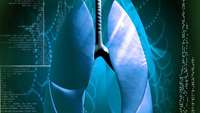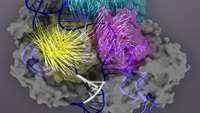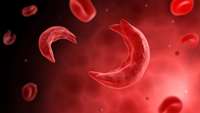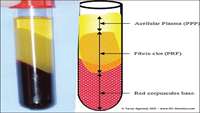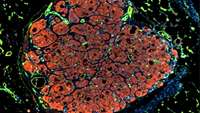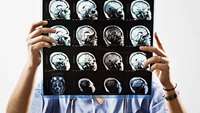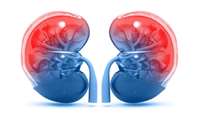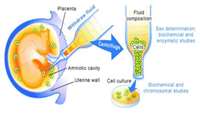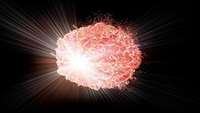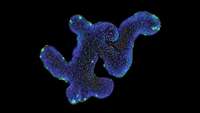Columbia Engineers and Clinicians First to Build a Functional Vascularized Lung Scaffold
End-stage lung disease is the third leading cause of death worldwide, accounting for 400,000 deaths per year in the United States alone.
Discovery helps improve accuracy of CRISPR-Cas9 gene editing
Scientists at the University of California, Berkeley and Massachusetts General Hospital have identified a key region within the Cas9 protein that governs how accurately CRISPR-Cas9 homes in on a target DNA sequence, and have tweaked it to produce a hyper-accurate gene editor with the lowest level of off-target cutting to date.
Sickle-Cell Patients See Hope in CRISPR
Nazaire, a 43-year-old Haitian-American, figures he’s been hospitalized more than 300 times since he was a child. He and other sickle-cell patients will tell you that the worst part of the disease is the debilitating pain. “It’s a horrifying thing to have, because it’s extremely painful. It’s a major fight all the time,” he says.
Use of platelet-rich fibrin in regenerative dentistry: a systematic review.
OBJECTIVES: Research across many fields of medicine now points towards the clinical advantages of combining regenerative procedures with platelet-rich fibrin (PRF). This systematic review aimed to gather the extensive number of articles published to date on PRF in the dental field to better understand the clinical procedures where PRF may be utilized to enhance tissue/bone formation.
Engineered liver tissue expands after transplant
Many diseases, including cirrhosis and hepatitis, can lead to liver failure. More than 17,000 Americans suffering from these diseases are now waiting for liver transplants, but significantly fewer livers are available.
Which research results in mice will help humans with MS? Now there’s a way to tell
People with multiple sclerosis (MS) know all too well the frustration of hearing that success in treating the disease in mice had little or no effect in humans.
Concise Reviews: Kidney Generation with Human Pluripotent Stem Cells
Chronic kidney disease (CKD) is a world-wide healthcare problem, resulting in increased cardiovascular mortality and often leading to end-stage kidney disease (ESKD) where patients require kidney replacement therapies such as hemodialysis or kidney transplantation
Amniotic fluid stem cells ameliorate bladder dysfunction induced by chronic bladder ischemia in rat
This study investigated the protective effect of human amniotic fluid-derived stem cells (hAFSCs) against bladder overactivity in rat model of atherosclerosis-induced chronic bladder ischemia.
A phase 1 trial of 90Y-Zevalin radioimmunotherapy with autologous stem cell transplant for multiple myeloma
This phase 1 study (clinical trial NCT00477815) was conducted to determine the maximum tolerated dose (MTD) of yttrium-90 ibritumomab tiuxetan (90Y-Zevalin) with high dose melphalan (HDM) therapy in multiple myeloma (MM) patients undergoing autologous stem cell transplantation (ASCT).
In vitro and in vivo imaging and tracking of intestinal organoids from human-induced pluripotent stem cells
Human intestinal organoids (hIOs) derived from human pluripotent stem cells (hPSCs) have immense potential as a source of intestines.


